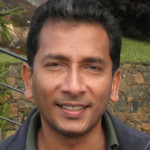To SAITM Or Not To SAITM – Is That The Question?

By Ruvan Weerasinghe –April 11, 2017
For some it appears so. For any of them who are rational, it must instead be: can medical education be provided by the private sector? After all, SAITM also awards other degrees as a UGC recognized higher education institution. Many of the arguments for abolishing SAITM are actually calls for reversing some 25 years of private tertiary education in Sri Lanka! The issue has been so politicized, that for the uninitiated, the issue actually is: what is the question?
I’d like to take some space to try to address some of the arguments on both sides with a view to show why, once you’ve taken a side on this issue, your rationality takes a back seat. I also want to take this space to explore what a non-partisan approach to the issues may look like. Of course, I’m open to correction – but only to correction on rational grounds. So, if you are on one of the two sides already, you are either disqualified to respond – or welcome to point out some of the weaknesses of ‘your side’ of the argument only!
First to take on a moot point that both sides seem to be making (obviously to make exactly opposite ‘cases’), that Medicine is somehow NOT to be considered in the same manner as other disciplines (or professions?). This has been a typical elitist stand that the people of this country too appear to have largely accepted, owing to possibly the direct nature of the relationship between one’s physical health and the medical profession. As one of my learned Civil Engineering professor friends pointed out recently, Engineers probably save or in other ways affect the health of populations much more than medical doctors do! A serious look at many of the problems affecting the health of people of this country would cause us to realize that far more counsellors and therapists are probably needed to ‘heal’ our people than medical doctors. No doubt, many other professions including but not limited to law, finance, administration, teaching among others would also feel that their professions are critical to the functioning of a society. Apart from these ‘professions’, it is often the philosophers, scientists, psychologists, sociologists and even politicians that are (or should be) indirectly but much more critically involved in the long-term wellbeing of a nation.
So, what are the arguments surrounding the SAITM issue? Here I attempt to list the ones that have been made in the recent past, not least by the ‘My SAITM Story’ campaign and the state university protest march campaign.
1. The intake to the SAITM degree is deficient
2. SAITM students’ and their parents sacrificed much
3. SAITM charges exorbitant fees
4. State university students come through district quota
5. SAITM students aren’t serious about the medical profession
6. State university students are disruptive
7. SAITM owners represent the elite who get preferential treatment from authorities 8. GMOA is able to influence government
9. SAITM is ‘selling’ medical degrees
10. State university students are jealous of others
11. The clinical training provided at SAITM is inadequate
12. The medical doctors produced by the state system are superior
2. SAITM students’ and their parents sacrificed much
3. SAITM charges exorbitant fees
4. State university students come through district quota
5. SAITM students aren’t serious about the medical profession
6. State university students are disruptive
7. SAITM owners represent the elite who get preferential treatment from authorities 8. GMOA is able to influence government
9. SAITM is ‘selling’ medical degrees
10. State university students are jealous of others
11. The clinical training provided at SAITM is inadequate
12. The medical doctors produced by the state system are superior
Even though I’ve mixed up the issues brought up by the two sides, even a novice would be able to figure out that every alternate issue is made by the ‘other side’. How is this possible? The reality is that, apart from a very few, our society has been forced to ‘take sides’ on this issue. In fact, these become issues after one has chosen one’s ‘side’ on it! For those who have not yet taken a side, the issue often is: so, what is the problem?
It would be so refreshing to see a state university medical faculty member making a case for SAITM and private medical education, and similarly a SAITM medical faculty member taking up some of the issues of equity that need to be addressed. But alas, that is too much to expect from a profession to which our society has bestowed so much prestige.

